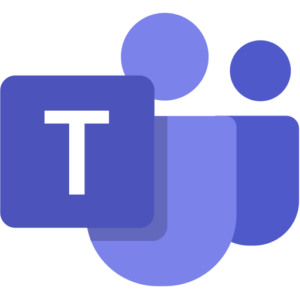Access essential tools—Outlook, Teams, Word, and Excel—from any device. Collaborate effortlessly, manage emails, and keep your files secure. M365 provides you with everything you need for work in one place.
Log in through your browser below or follow the instructions for desktop and mobile installation>>
Featured Services

Manage your email, calendar, tasks and contacts in one place.

Bring everyone together in one place to meet, chat, call and collaborate.

Save, access, edit, and share files anywhere at any time.

Additional apps included in your Microsoft 365 Educational Suite:
Power BI (Free): A powerful data visualization tool for individual users to create and explore interactive reports and dashboards. Analyze your data with rich visualizations and gain insights using intuitive drag-and-drop functionality. Perfect for personal use and self-service business intelligence, but with limited sharing and collaboration capabilities.
- To request Power BI Pro and learn the differences between the free and pro version, visit our Data and Reporting page.
Forms: A tool for creating surveys, quizzes, and feedback forms. Collect and analyze feedback and responses quickly and easily.
Word: A robust word processing tool for academic and administrative work. Draft research papers, create course syllabi, or write reports with powerful formatting and collaboration features.
PowerPoint: A presentation software for creating impactful lectures and presentations. Design compelling slideshows with multimedia elements to enhance your teaching or share research findings.
Excel: A powerful spreadsheet tool for data management and analysis. Track student grades, analyze research data, and manage budgets with advanced calculation and visualization tools.
OneNote: A digital notebook for organizing academic and project notes. Capture lecture ideas, research notes, and meeting minutes in one place and collaborate with colleagues seamlessly.
Planner: A task management tool for organizing projects and team activities. Create plans, assign tasks, and track progress with visual dashboards—keeping your team aligned and projects on schedule.
Sway: A digital storytelling app for creating interactive reports and presentations. Easily design visually appealing newsletters, project reports, or classroom content using drag-and-drop functionality and built-in templates.
Stream: A secure platform for sharing and viewing video content. Upload lecture recordings, share instructional videos, or host departmental announcements with integrated accessibility features.
Clipchamp: An easy-to-use video editor for academic and promotional content. Create instructional videos, promotional materials, or event highlights with professional-quality editing tools.
SharePoint: Share and manage content, knowledge, and applications to empower teamwork, quickly find information, and seamlessly collaborate across the organization.
Frequently Asked Questions

Learn More
Not finding what you are looking for or need technical assistance? We are here to support you!







